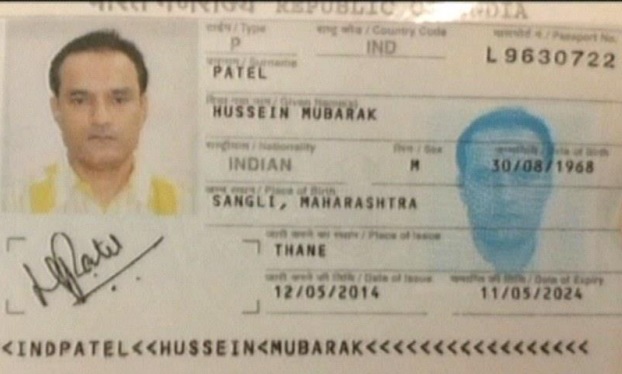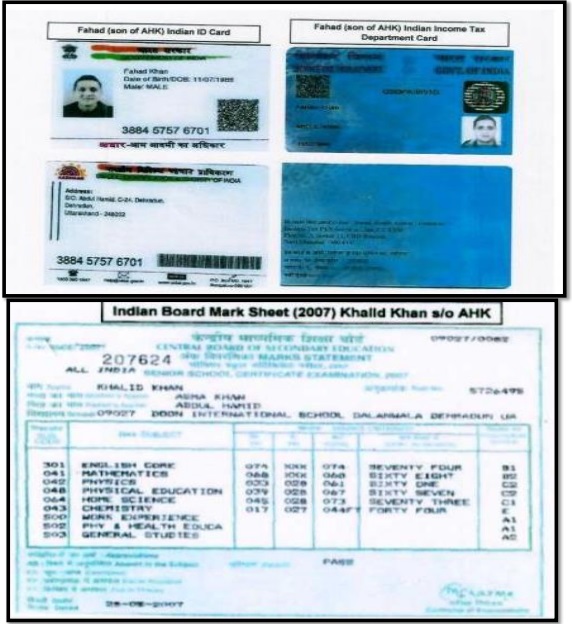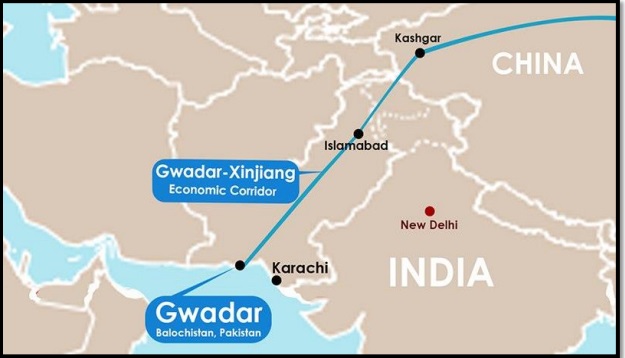Prelude. The strategically situated deep sea Gwadar port promises significant
strategic rewards for Pakistan. It is likely to attract traffic from Central Asian Republics
(CARs), China, Afghanistan, and western countries. Because of its prime location in the
The Arabian Sea near to Straits of Hormuz, the Gulf of Oman, and at the junction of South Asia,
Middle East and Central Asia, the port has the potential to function as a transshipment
harbor after the necessary infrastructure is put in place. However, the port also faces
some daunting challenges due to the divergent interests of major players in the ongoing New
Great Game. This growing great powers competition, seemingly driven by zero-sum
mindset has various strategic and security implications for Pakistan’s Gwadar port in its
restive province of Balochistan.
2. Gwadar port has immense political and strategic benefits for Pakistan and
the region at large. Sea trade is considered one of the major sources of globalization
and integration. This is more so of the western world which is relatively more integrated.
The consequent interdependence has not only resolved interstate conflicts but has also
made it costly for states to engage in wars and conflicts as this would harm the common
interests of countries involved owing to the interdependence. The region of South Asia
has seen enough conflicts, poverty, and illiteracy as it lacks integration and cooperation
in various fields. The projects like Gwadar port and China Pakistan Economic Corridor
have the potential of reviving the ancient Silk Route and integrating the region of South
Asia internally and connecting it with the external world. Thus, by providing shipping services
through Gwadar port, Pakistan can develop mutually beneficial relations with the
neighboring states seeking those services. This in turn would lead to increasing
interdependency and cooperation in other grave issues like peace and security, poverty,
illiteracy etc. The signs of this can already be seen in the case of Pakistan’s warming
relations with Russia which is seeking alternate markets for its oil and gas in the aftermath
of the western sanctions.
3. Constitutional Status of Gilgit Baltistan (GB) Yet another challenge to the
success of Gwadar port stems from the unsettled constitutional status of Gilgit Baltistan
(GB). GB is strategically situated to the very north of Pakistan and connects it with China
via Karakoram Highway (KKH). The KHH is now being expanded and upgraded as part
of CPEC initiative. As a gateway to China and Pakistan, it is through GB that 500 km of
CPEC will pass.40But for all this to happen, things are not as simple and smooth as they
might appear to some. This is so due to the disputed status of GB.
4. Security Threats to CPEC. There are a huge number of internal and external
security related threats which China Pakistan Economic Corridor is facing from the very
beginning. These threats are of diverse nature, as Tehrik-i-Taliban Pakistan is playing a
vital role in disrupting CPEC; however, external elements including Indian RAW
involvement cannot be overlooked in this regard. CPEC project has faced hundreds of
security-related events since its inception in May 2015 that claimed number of lives.
5. India being a hostile state to Pakistan has perpetually been involved in false
propaganda against CPEC. RAW has dedicated millions of dollars to destabilize
Balochistan via sponsoring terrorist activities including killings of Chinese
experts/ engineers to strike a direct blow to Pak-China economic relations. It is not
the first time India has been involved in subversive activities against Pakistan, in past
India has openly opposed the CPEC project since India perceives this as a challenge to
its sovereignty.
6. In addition, in March 2016, Kulbhushan Jadhav, an Indian spy, was captured
in Mashkel, Balochistan. When Pakistan Security forces detained him, he confessed in
a video statement that he is an officer of the Indian Navy on a top-secret mission in
Balochistan.


Besides this, he confessed to helping Baloch insurgents to carry out terrorist
attacks in Pakistan. Pakistani security forces interrogated him and it was also claimed
that his mission was to sabotage the CPEC by using Baloch insurgents. There have also
been multiple reports of individuals in the BLA being supported by India.
7. Intelligence agencies while foiling attempt to spread terrorism in Gilgit Baltistan,
busted another network of Research and Analysis Wing (RAW) involved in carrying out
terrorist and extremist activities in Pakistan. The intelligence agencies apprehended at
least 14 members of nationalist organisation, Balawaristan National Front (Hameed
Group) and seized weapons and explosive material from their possession. It has been
revealed that the RAW mentored BNF in Gilgit-Baltistan.’

a. The target of the organization was the youngsters from the country’s
different universities and the aim of the organization was to lure youth
towards terrorism.
b. RAW took BNF chairman Abdul Hameed Khan to India in 1999 and was
given a three-star apartment in Dehli, where his family and three sons were
shifted.
c. RAW also provided identification proofs and facilities to Khan for starting a
business in India, while the expense of his sons’s had been given expensive
education in different schools and colleges in India and Europe.

8. Indian involvement in Baluchistan unrest cannot be ignored due to the
changing geopolitical environment of the region. India, which is dreaming to become a
hegemonic power in the region and dominating the Arabian Sea and the Indian Ocean,
is upset due to the growing influence of China in Pakistan through CPEC and Gwadar
port. A fully-developed and functional Gwader port near the Strait of Hormuz enables
China to frustrate India’s dream of dominating regional waterways. New Delhi feels that
the CPEC would have serious strategic implications for India. It perceives that Gwadar
port would empower Pakistan to control strategically important energy sea lanes on the
Persian Gulf and CPEC would connect Pakistan through road lanes with the region. India
views Chinese engagement in Pakistan with suspicion and thinks that China wants to set
up bases and outposts across the globe to monitor and safeguard energy flows.
9. GB has massive potential for international and national tourism. At present, the
mainstay of the GB economy is tourism and CPEC will open a great number of avenues
for the prosperity of the region and people.
10. Indian at present is engulfed in state-sponsored ethnic divide, the minorities are
being brutally killed, and lynched by cow vigilante groups of RSS, the recent WHO report
revealing the Indian government’s deliberate/ planned efforts to hide the data of Covid
causalities has once again shown the true face of shinning India. Indian federation is
facing serious threats from inside and is destined to implode within. The world is aware
that Indian statecraft is based on falsehood and propaganda to conceal its internal
problems.














